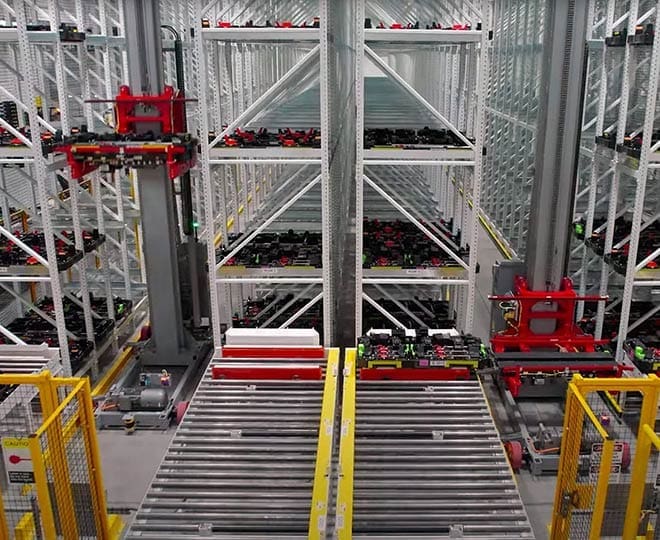Manufacturing Automation
Manufacturing automation refers to the use of control systems, such as computers or robots, to manage machinery and streamline production processes. It enhances efficiency, reduces human error, and lowers operational costs, leading to increased productivity and improved product quality


Not sure where to start with automating your warehouse?
Download the eBook


Talk to an automation expert about improving your operation today.
Talk to an Expert Today
Manufacturing Automation
Manufacturing robots are a cornerstone of modern industrial operations, playing a crucial role in enhancing production efficiency and precision. These automated machines are designed to perform a wide range of repetitive tasks, from assembly to welding, painting to packaging. By doing so, they help minimize human error and maintain a consistent level of product quality.
Furthermore, the integration of robots into manufacturing processes has been transformative, leading to a significant revolution in the industry. They not only streamline operations but also contribute to safer work environments by taking over dangerous tasks. This shift towards automation continues to shape the future of manufacturing, promising further advancements in productivity and innovation.
Robots in Manufacturing
Manufacturing robots are pivotal in modern production lines, enhancing efficiency and precision. They execute repetitive tasks, reduce human error, and ensure consistent product quality, revolutionizing the manufacturing landscape.











